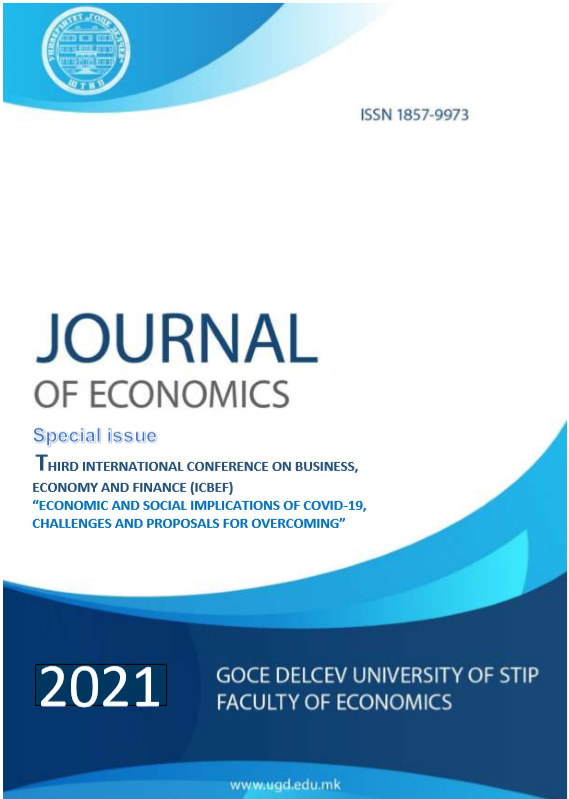Banking Sector Performance During the COVID-19 Crisis in the Republic of North Macedonia
DOI:
https://doi.org/10.46763/JOE2160221gsKeywords:
bank profitability, banking system in the Republic of North Macedonia, COVID-19 pandemic, credit risk, liquidity risk, non-performing loansAbstract
This paper explores the effect of the COVID-19 crisis on commercial banks in the
Republic of North Macedonia. It has used data from financial statements of the banks in
order to find out if there are changes in banks profitability, as well as banks exposure
on liquidity and credit risk in the period of Corona crises and before the crises.
Furthermore, we explore if there are changes in the credit and deposit potential of banks
and whether there are an increase in non-performing loans. We conclude that even the
banking sector has faced several challenges, it maintained its stability and contributed
to mitigation of the consequences of the corona crisis. This, on the one hand, is a result
of public confidence in the banking system, but, on the other hand is due to the rapid
reaction of the National Bank of Republic of North Macedonia. In 2020, the banking
system made a higher profit compared to the previous year. Net interest income was
the most significant in the structure of total income and did not decrease in 2020
compared to 2019. Banks ensured solid growth of loans and deposits as well as properly
managed their credit and liquidity risk. It is important to emphasize that banks have
maintained a stable and solid liquidity position, which is one of the main pillars of the
stability of the banking system, especially important in times of crisis. There was also
no increase in credit risk, on the contrary there was a decrease in the percentage of
non-performing loans. This is primarily due to regulatory measures taken by the
National Bank in the field of credit risk management and the introduction of the
possibility of temporary deferral of loans.


